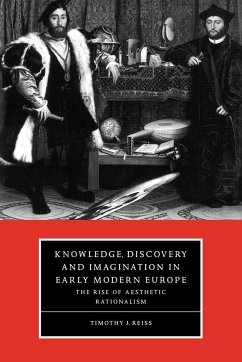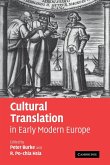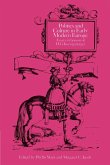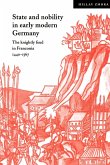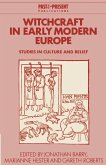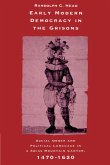Recent explanations of changes in early modern European thought speak much of a move from orality and emphasis on language to print culture and a 'spatial' way of thinking. Timothy J. Reiss offers a more complex explanation for the massive changes that occurred. He describes how by the late fifteenth century the language arts of the trivium had come to seem useful only for communication, teaching and public debate, and how humanists turned to the mathematical arts of the quadrivium - including music - to enable new means and methods of discovery. Reiss goes on to argue that the new 'mathematical' ideal formed the basis of wide sociocultural renewal; he analyses Northern vernacular grammars, examines the work of French and Italian mathematicians, musicians and philosophers including Descartes, and censures such modern commonplaces as the supposed impact of print and 'spatial' thinking. He ends by exploring the broad impact of this 'mathematization' of the Western imagination.
Table of contents:
Introduction; Part I. Problematizing the Language Arts: 1. Grammarians' dreams; 2. Grammarians' nightmares; Part II. Passages: 3. Rhetoric and politics; 4. Method and knowledge; Part III. Mathematics, Music, and Rational Aesthetics: 5. Quadrivial pursuits; 6. Bridging effects; 7. Musical elaborations; 8. Well-tempered imagining; Bibliography; Index.
Timothy J. Reiss argues that the massive changes in thought in early modern Europe occurred, not because of a move from orality to print culture, but rather because the means and methods of discovery came to depend on the mathematical disciplines, including music, instead of the language arts.
A new explanation for the substantial changes of thought that occurred in early modern Europe.
Hinweis: Dieser Artikel kann nur an eine deutsche Lieferadresse ausgeliefert werden.
Table of contents:
Introduction; Part I. Problematizing the Language Arts: 1. Grammarians' dreams; 2. Grammarians' nightmares; Part II. Passages: 3. Rhetoric and politics; 4. Method and knowledge; Part III. Mathematics, Music, and Rational Aesthetics: 5. Quadrivial pursuits; 6. Bridging effects; 7. Musical elaborations; 8. Well-tempered imagining; Bibliography; Index.
Timothy J. Reiss argues that the massive changes in thought in early modern Europe occurred, not because of a move from orality to print culture, but rather because the means and methods of discovery came to depend on the mathematical disciplines, including music, instead of the language arts.
A new explanation for the substantial changes of thought that occurred in early modern Europe.
Hinweis: Dieser Artikel kann nur an eine deutsche Lieferadresse ausgeliefert werden.

